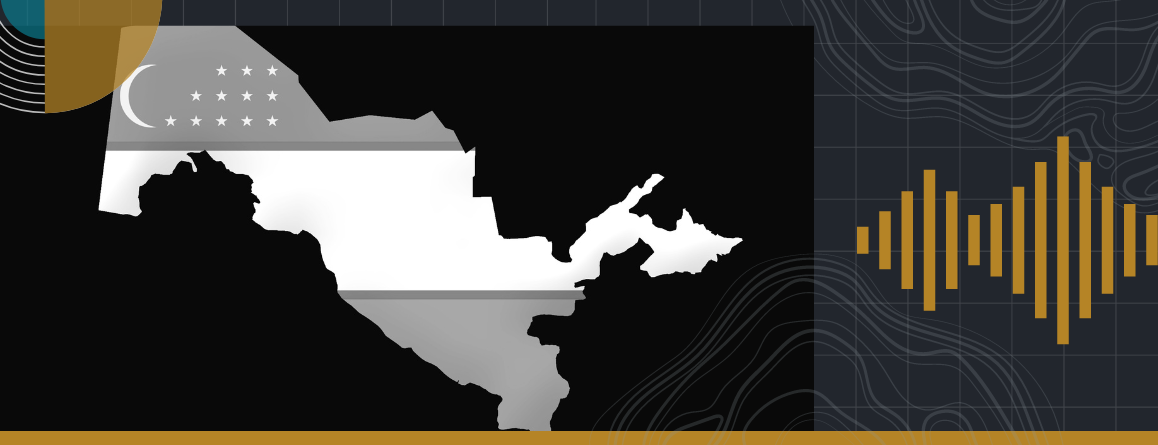Freedom for Eurasia received judicial decisions regarding administrative convictions of people in Karakalpakstan participating in telegram groups of Leader of Alga Karakalpakstan party in exile Aman Sagidullaev and “Svobodu Tajimuratovu (Freedom to Tajimuratov).” A.A. was detained for seven days for joining telegram groups under Article 202(2) of the Administrative Code of Uzbekistan “Tendency to participate in the activitie1s of illegal non-state non-commercial organizations, movement, sect”.
Another case of a J.J. is the administrative convictions of two women in Nukus for violation of Article 202(2) of the Administrative Code of Uzbekistan for making a photo of A4 paper which had “Erkin Karakalpakstan (Free Karakalpakstan)” written on it. The court’s decision stated that KK took a picture of this statement and sent it to J.J.2 and that “it instigated neutral witnesses against the prevention inspectors” that was found to be in violation of Article 195 (1) of the Administrative Code of Uzbekistan “Counteraction to the performance of duty by employees of internal affairs bodies.” Both women were found guilty and were fined 1.500.000 Uzbek sum each (120 USD).
Activist M.R. was charged 900.000 sum (72 USD) for violating 202(2) of the Administrative Code of Uzbekistan for posting videos on YouTube and allegedly urging people to participate in protests.
These are examples of many similar cases where Karakalpaks are charged for peacefully practicing their right to freedom of expression. Karakalpaks who lost their family members during protests on 1-2 July 2022 are under surveillance. In our report on a mission to Karakalpakstan last year we described the situation of a mother of a deceased young man who was threatened by police officers for being a member of a telegram group. Now, we are receiving more reports of administrative detentions of Karakalpaks for following Telegram groups, YouTube, Facebook, and Instagram channels.
Karakalpak population does not have its own political parties. Absence of a possibility to create independent political parties that would represent the interests of Karakalpaks has been voiced by Karakalpaks but led to persecution of those who dare to speak up.
Freedom of Expression is one of the fundamental rights enshrined in the Universal Declaration of Human Rights Article 19, and the International Covenant on Civil and Political Rights Article 19, and both of them state that everyone has the right to freedom of opinion and expression; this right includes freedom to hold opinions without interference and to seek, receive and impart information and ideas through any media and regardless of frontiers”. Freedom of Expression can be subject of rights of limitations in cases of hate speech, defamation, national security concerns, public order, obscenity, intellectual property rights, and privacy. However, any limitations should adhere to international human rights standards and principles, including legality, necessity, proportionality, and non-discrimination.
Freedom of expression and association are guaranteed by the Uzbek constitution: Article 33.
Everyone has the right to freedom of thought, speech and belief.
Everyone has the right to search, receive, and distribute any information.
The state creates conditions for providing access to the world information network Internet.
Restriction of the right to search, receive and distribute information is allowed only in accordance with the law and only to the extent that it is necessary for the purpose of protecting the constitutional system, public health, public morals, rights and freedoms of other persons, ensuring public safety and public order. as well as preventing the disclosure of state secrets or secrets protected by law.
Part two of Article 33 has a limitation on the right to freedom of expression, however, in cases of Karakalpaks these restrictions cannot be used without infringing the above article since their demand is a sovereignty and fair trial.
Article 39.
Citizens of the Republic of Uzbekistan have the right to join trade unions, political parties and other public associations, to participate in mass movements.
No one can infringe on the rights, freedoms, and dignity of the opposition minority in political parties, public associations, mass movements, and representative bodies of state power.
Uzbekistan’s authorities have a long history of persecuting its citizens for expressing their views that contradict the government’s stand. There are cases of criminal prosecution for expressing opinions about the right of Karakalpakstan to independence and secession from Uzbekistan through a referendum. However, Karakalpak activists who had the courage to voice their opinions were labeled as separatists and accused of calls for an unlawful change of constitution and organizing mass riots. These actions of Uzbek special services target not only those who reside in Karakalpakstan but also Karakalpaks outside of Uzbekistan in order to shut down sources of independent information and political discourse.
Persecuting people for merely following the social media accounts of opposition leaders represents a direct infringement on their fundamental rights to freedom of association and expression. By targeting individuals for their digital affiliations, authorities undermine the principles of democracy and human rights. Such actions oppress open discourse, prevent access to diverse perspectives, and foster an environment of fear and censorship. This suppression not only violates individual liberties but also threatens the foundations of democratic governance and the development of pluralistic societies.
- Dauletmurat Tajimuratov – is a Karakalpak lawyer, journalist, and human rights defender who played a leading role in the 2022 Karakalpak protests. In January 2023, he was sentenced to 16 years imprisonment for “orchestrating mass riots” and “attempting to seize power” in a politically motivated trial.
↩︎ - In order to keep privacy of individuals we use initials ↩︎
